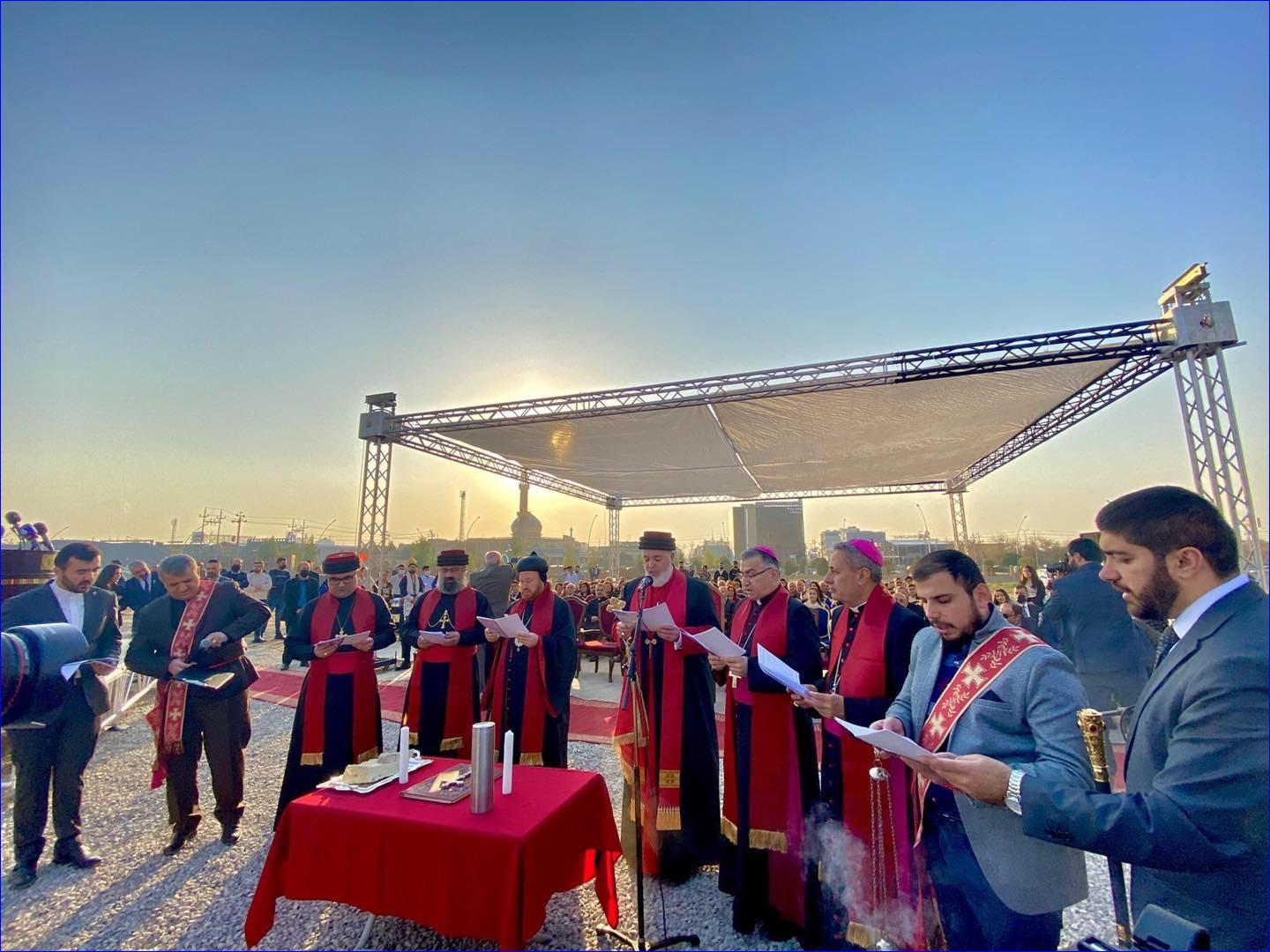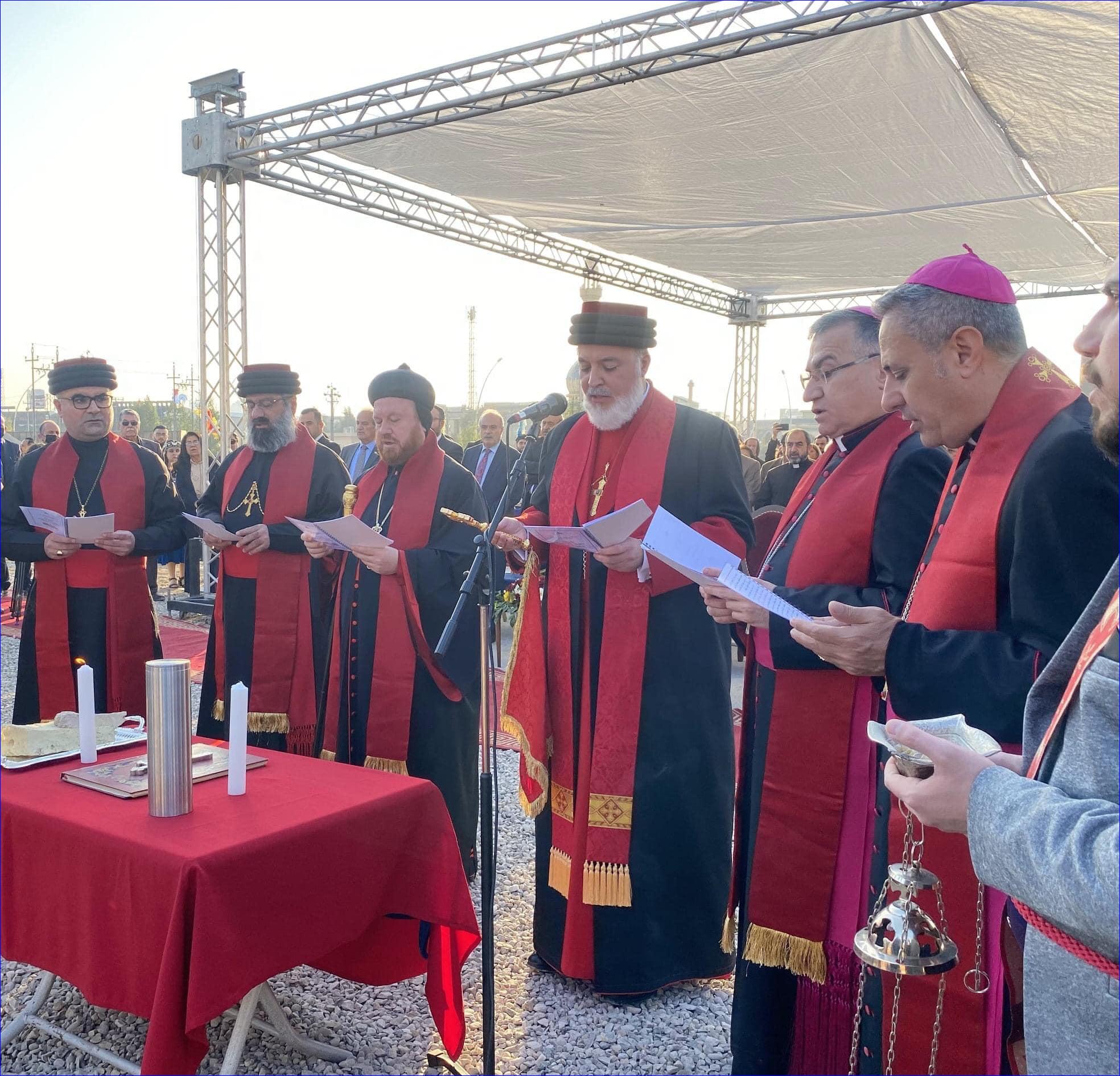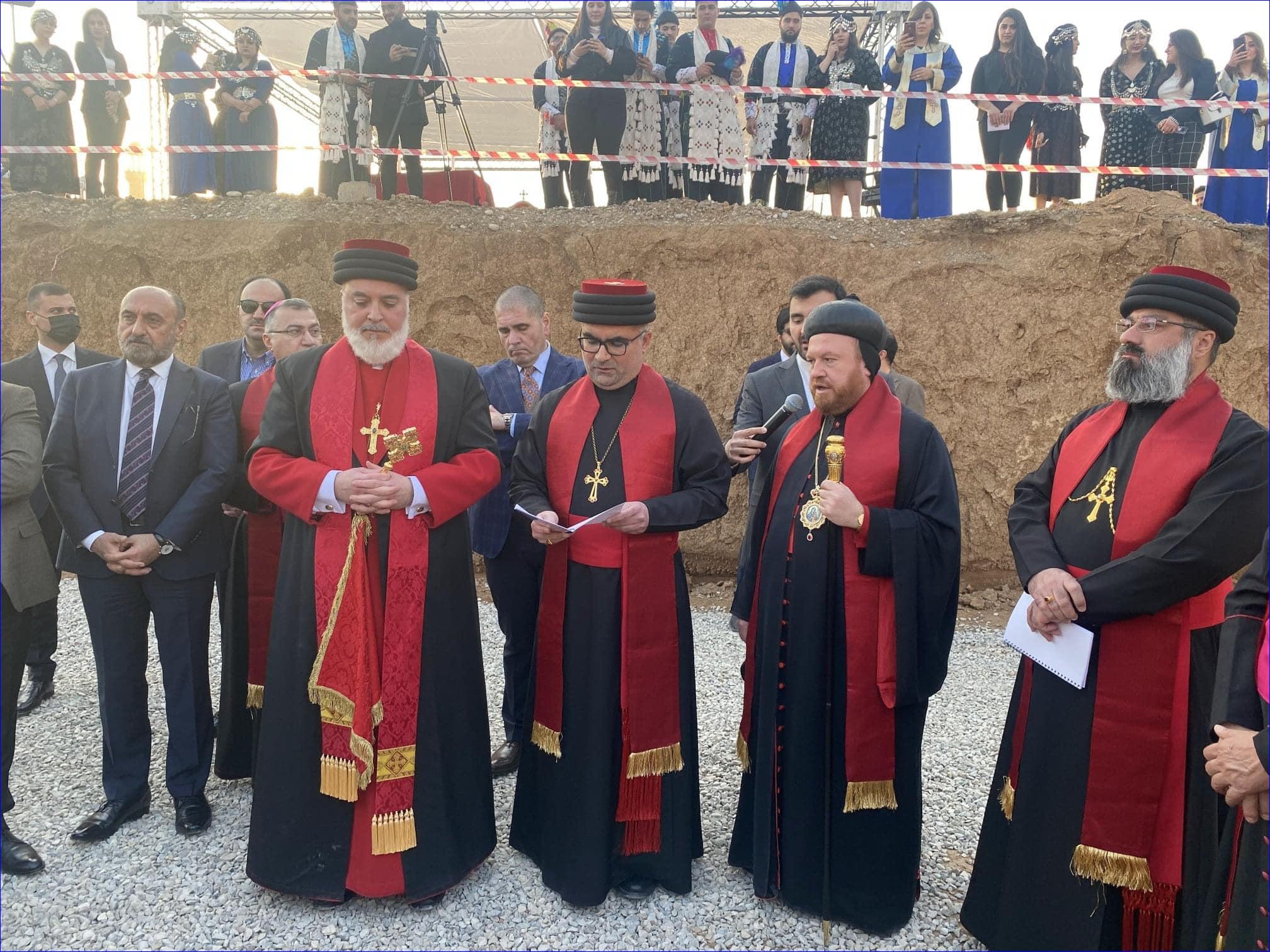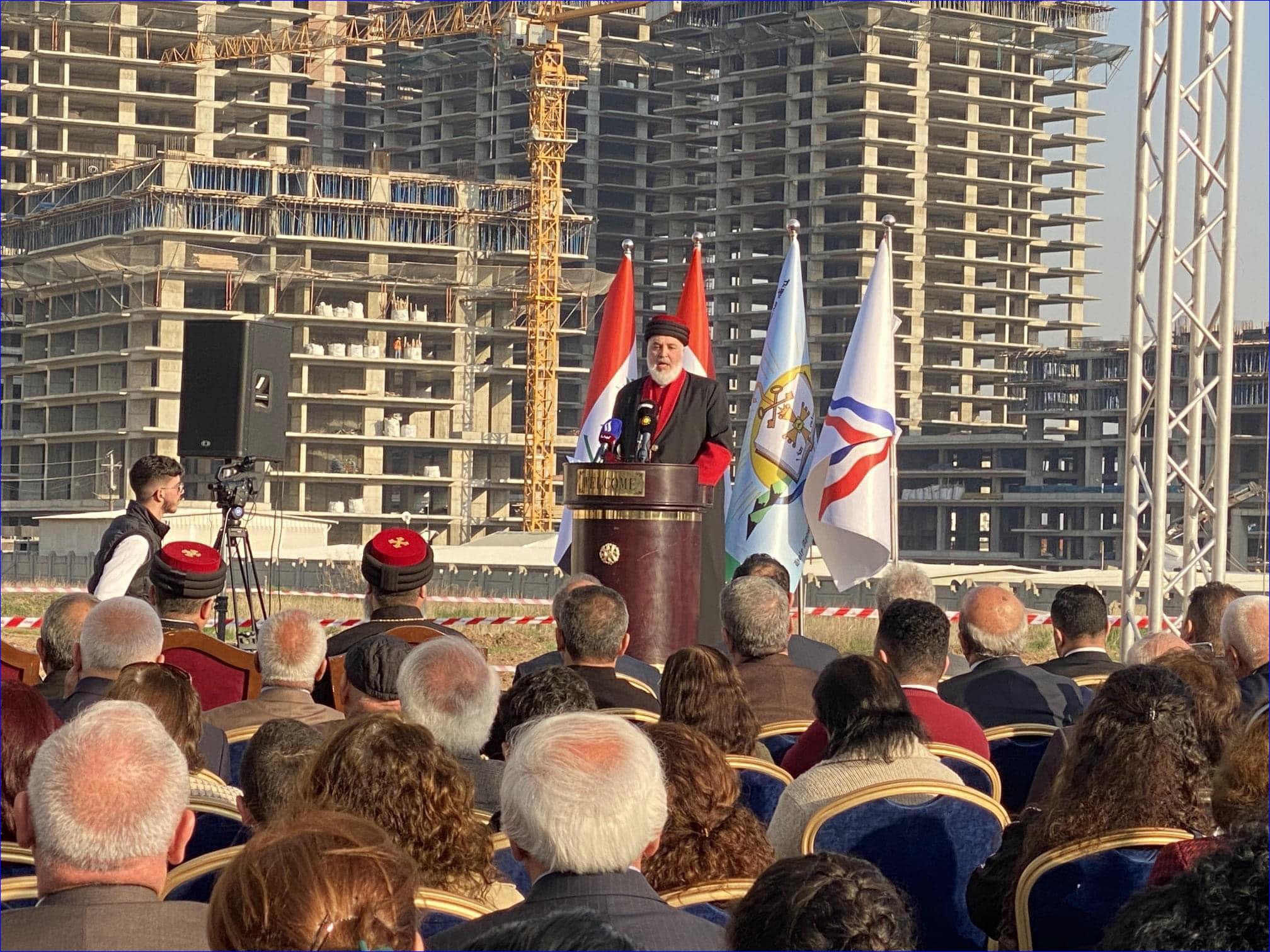


The church will become the religious and administrative centre of the patriarchal see of the Assyrian Church of the East, marking its final return to Iraq. The see had been closed for more than a decade.
The ceremony was led by Patriarch Mar Awa III, together with numerous local religious leaders (including Chaldean and Syriac bishops) along with government officials and representatives of civil society groups.
The land on which the future cathedral and the patriarchal see will rise belongs to the Assyrian Church of the East and is located near downtown Erbil, not far from the citadel.
Construction began about ten years ago, under the leadership of then Patriarch Mar Dinkha IV, but was eventually abandoned for a long time. The project was resumed recently, culminating in yesterday's ceremony.
Local Christian sources are very happy about the event, noting that it represents a further sign of the Church's "return to Mesopotamia" and its "land of origin" after "a few decades" of exile.
The Assyrian Church of the East follows the Eastern Syriac rite and is considered a legitimate continuation of the Eastern Church.
In 1933, due to the geopolitical situation in the region and anti-Christian persecution, starting with the Assyrian-Armenian genocide in the First World War, the Church moved its headquarters first from the Middle East to Cyprus, then to Chicago in the United States.
The first steps towards return were taken in 2006, with the decision to build the new patriarchal see in Erbil and the election of the patriarch, with full authority over the place where the history of the Assyrian Church originated.
Mar Awa Royel is the current head of the Assyrian Church of the East, succeeding Mar Gewargis III Sliwa who resigned last September. Most of the Church's 350,000 members live in the diaspora.

In both Iraq and Syria, Christians also commemorated yesterday (pictures 3 and 4) the seventh anniversary of a deadly attack by the Islamic State against Assyrian villages in the Khabour plain, in Syria.

Overnight between 22 and 23 February 2015, hundreds of Islamic State vehicles drove into 35 villages in Hasakah governorate, north-eastern Syria, kidnapping 290 civilians, most of them women and children, executing at least 44 of them.
About 10,000 people fled the region in search of safety. All churches and Christian places of worship were set on fire or destroyed in one of the darkest pages in the history of anti-Christian persecution by the Islamic State.


or register to post a comment.